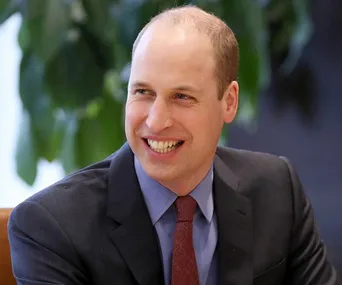Trigger warning: This post deals with depression and suicide.
When you love someone who is suffering from a mental illness, it can be truly heartbreaking.
According to the World Health Organisation, more than 800,000 people worldwide commit suicide each year and as there is still a lot of negative stigma around terms like depression and anxiety, it’s so important to treat mental health with the same degree of seriousness as physical health.
In an exclusive chat with Now To Love, motivational speaker and best-selling author Dr Dain Heer opened up about his personal experience of how he wanted to end his life and what made him reconsider as well as how we as individuals, can help someone in need.
Dain’s story
Dr Dain Heer gave himself six months and told himself, ‘Universe, either my life really changes or I’m out of here.'”
Even when Dr Dain was a child and his parents would ask what he wanted to be when he grew up, he simply wanted to be happy.
“Then I got to this place 18 years ago where I hadn’t been happy for almost three years.”
“I was a seeker, I was one of those people who was always looking for something different because I knew something different should be possible. I did weekend workshops, read books and I never found it so I just stayed unhappy and I finally at one point had enough. I had what looked like this perfect life, I was a chiropractor, I had this beautiful girlfriend, I was living in Santa Barbara which is a really nice place in California and I finally got to the place where I’d had enough.
“It’s kind of like feeling like you’re twisted into this black hole where things that used to make you happy don’t, people that you used to feel connected to, you don’t feel connected to, rather than feeling a sense of joy and things that used to bring you joy, just doesn’t, like you can’t find it. I was seeking it, I wasn’t just sitting in it and living it thinking ‘Oh I guess this is how I am,’ but it wasn’t changing and I wasn’t getting the sense of lightness that I was looking for.”
“I gave it six months. It wasn’t just like I was saying ‘Oh I’ll either kill myself or have a cup of coffee,’ I was literally very serious about this. I was like ‘Universe, either my life really changes or I’m out of here.'”
Even when he saw an ad in the local paper for a program called, ‘Access Consciousness,’ Dain was so frustrated that he threw it away.
“I saw it the following week, I went in and had a session, literally after an hour and 15 minutes, I left the session looking up at the sky going ‘Oh my god has it always been this beautiful here?’ and I never contemplated killing myself again and it literally changed the course of my life.”
READ MORE: Eight celebrities who have opened up about living with anxiety and depression.
How can you help someone suffering from depression?
Dr Dain says that one of the most valuable things we as people can do is simply listen.
“One of the difficulties is some people don’t have the freedom to speak about this. I’m so grateful for Suicide Awareness Week but also R U OK Day in Australia, I wish we had that in the US because it would at least start to bring awareness to the fact that it’s ok not to be ok.
“But the thing that really sticks out for people is when they feel alienated and they feel alone and nobody else seems to get them so just one person being there, listening to them, not judging them, and letting them tell them what goes on, that can be the beginning of a different possibility for that person.”
People with depression and who have considered suicide also tend to be the most sensitive people, and Dr Dain says that many don’t realise that they have such a level of awareness and care so much for other people.
“What happens is they’re so aware of everybody else’s thoughts, feelings, emotions and judgement. For everybody else it’s like a one out of 10 on the volume, for them it’s about a 20 out of 10.
“It also tends to be the healers of the world, people who want to do things for other people that find themselves so embroiled in the sadness, the trauma and drama, the judgement that other people have and the heaviness that they have.
He also adds that aside from listening to someone suffering, it’s important to acknowledge them as not wrong.
“One of the things I really find useful to give people are some questions that they can start asking because a question always empowers and opens up a different possibility, an answer always dis-empowers and closes down possibility.”
“So if you could get somebody to ask, ‘What’s right about me that I’m not getting?’ or if they’re particularly depressed about a situation if you get them to ask, ‘What about this I’m not getting, what’s the situation I’m not getting?’ and then also ‘What else is possible here?’ and ‘How does it get any better than this?’ Also, ‘What gift would the world lose if I left?’ and it starts to create a place where you ask those questions and other doorways open and they can start to look from a different place.
“It’s kind of like you’re stuck in this ongoing cavern, this loop basically, and what you want to do is whatever you can to break that loop even for a moment to give them a sense of possibility.”
Mental health in the digital age
There’s no denying that we live in a world where social media is such a massive part of our lives, and Dr Dain says it can have a negative impact on mental health.
“What people do is they put their perfect life on and so people are comparing themselves to that which is this idea of perfection that isn’t really the person’s life. They put up the picture of their vacation and the beautiful sunset, they don’t show you where the kids threw up in the bed just an hour before that.”
On top of that, Internet trolls are a very real problem that we simply didn’t have a few years ago.
“That anonymity that online provides, like there are some mean people in the world, and they just get the freedom to go and be mean because there’s no repercussion because no one knows who you are.”
READ MORE: Five mental health Instagram accounts to follow ASAP.
But it’s not all bad. In fact, Dr Dain says there are ways we can use the Internet and social media to our advantage. Like the hashtag #illridewithyou which popped up on feeds after the Sydney siege, he says that using a hashtag like #yourenotwrong could help people see that they are not alone and encourage them to talk about their mental health.
“Those of us who have a story, it can be extremely helpful if we speak up, we can contribute that awareness to other people, because once again, when somebody gives up hope, that is when the suicidal thoughts start and if we can restore hope to people, it doesn’t take much.
“We keep thinking it’s going to take years of therapy, it could literally take one hug, it could take one tweet, one kind message, because people get there when they feel like they’re living in a world of unkindness and they haven’t had a sense of kindness from anybody, ever or for a very long time and that’s when they start to give up hope in the world itself and their ability to create something different.”

One tweet or one kind message could make a huge difference for someone.
What to do if you feel like you are suffering
Whether it’s depression, anxiety, or any other illness, the conversation is opening up about mental health and there is always someone there for you.
If you, or someone you know, needs to talk to someone, call Lifeline on 13 11 44. Or, if it is an emergency and you’re experiencing a crisis, call 000 NOW.
Dr Dain’s motto following his dark period was to ‘Never quit, never give up and never give in.’
“One of the other things I realised is when you feel like you’re at the end of your rope, you don’t know if you’re going to make it. Just take two more steps because so many times right beyond that thing that seems like the most terrible thing that’s happened, two more steps beyond that is truly something that is absolutely beautiful.”
“I know it may sound cheesy but my true point of view is you’re too valuable for this world, you’re truly the gift that you are and one of the other questions you can ask is, ‘What gift am I to this world that I haven’t acknowledged and that I can be whether anybody else acknowledges it or not?'”



